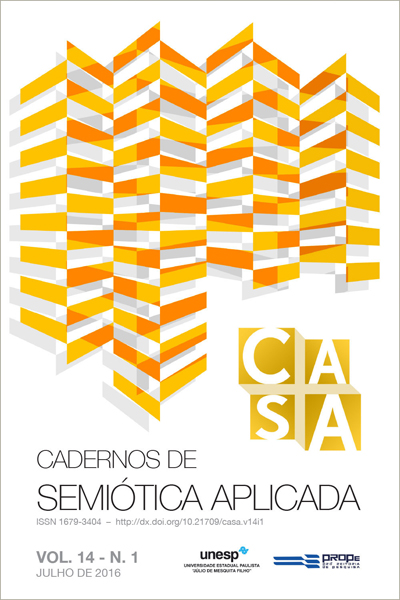OS BENS DE CONSUMO NOS RECLAMES DO PERÍODO DA BELLE ÉPOQUE EM PELOTAS, NO EXTREMO SUL DO BRASIL, DIVULGADOS PELA REVISTA ILLUSTRAÇÃO PELOTENSE
DOI:
https://doi.org/10.21709/casa.v14i1.7795Palavras-chave:
Pelotas, Bens de consumo, Mídia impressa, Modo de vida, Semiótica Discursiva.Resumo
A Belle Époque foi um período de mudanças políticas, econômicas e socioculturais. Teve origem na França, no final do século XIX, iluminada pelos ideais da Revolução Francesa e pela Revolução Industrial. Transformações, progresso e liberdade formam o tema central de um percurso em busca da civilidade, num discurso de modernidade. Uma visão de mundo que se enunciava com marcas de um outro, em um período eufórico, de alterações no modo de vida da sociedade. Em razão disso, propõe-se neste trabalho a análise do modo de vida da sociedade pelotense e a sua visibilidade por meio dos bens de consumo, divulgados em reclames da mídia impressa local em um período caracterizado como a sua Belle Époque. Como objeto de estudo, optou-se pela revista Illustração Pelotense, que se manteve em atividade entre os anos de 1919 e 1925. Justifica-se essa escolha pela expressiva circulação de suas edições, o que demonstra o interesse de seus leitores. Como base teórica e metodológica, utilizou-se a teoria da semiótica discursiva, a partir de Barros (1990), Landowski (1992) e Oliveira (1997).
Downloads
Publicado
Edição
Seção
Licença
Os autores dos trabalhos aprovados concordam em ceder aos CASA os direitos não exclusivos de publicação, permanecendo livres para disponibilizar seus textos em outros meios desde que mencionada a publicação da primeira versão na revista. Autorizam, ainda, a revista a ceder seu conteúdo para reprodução em indexadores, repositórios e similares. É vedada a tradução para outro idioma sem a autorização escrita do Editor, ouvida a Comissão Editorial. A responsabilidade do conteúdo dos artigos é exclusiva dos autores.

